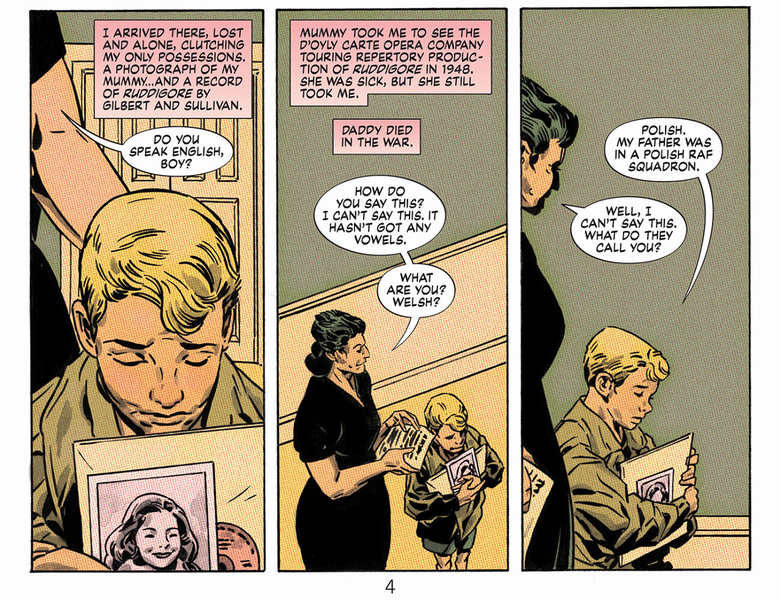laughing_tree (![[personal profile]](https://www.dreamwidth.org/img/silk/identity/user.png) laughing_tree) wrote in
laughing_tree) wrote in ![[community profile]](https://www.dreamwidth.org/img/silk/identity/community.png) scans_daily2024-01-18 04:15 pm
scans_daily2024-01-18 04:15 pm
Miracleman: The Silver Age #6 - "Who Is... Dickie Dauntless?"

It’s one of those things where the weirdest part of this for me is knowing that I’ve had the last issue in my head since the beginning. I could write the last page of it now. What’s so strange is the idea that, in the next few years, it will be done and I will be one step further toward the grave. -- Neil Gaiman
Content warning: Child abuse









no subject
The sweet and tender encounter between these two is the highlight of this issue for sure. And Dickie's past makes his revulsion at Miracleman's kiss even more understandable.
Again, this feels like dangerous territory in the age of social media quoting panels out of context. It'd be a cruel irony if Gaiman, one of the most visibly pro-queer writers of his generation, was read as anti-queer because he wrote one character, repulsed and traumatized by same-sex encounters, who finds a sweet release, and relief, in kissing a girl. But it's not really about that, it's about consent and consideration and treating each other with respect. It may even feel subversive to tell this story from the other direction than how it usually went in the Eighties and Nineties, with gay people whom society tried to force straight finally finding peace in each other's arms.
Also interesting is the swerve on Dickie's name: even after learning his full past, he feels no connection to whatever Polish name he Anglicized it from. Not how these stories sometimes go, but Dickie doesn't seem to have taken much from his parents or heritage: he'd rather imagine himself on the winning side in World War II than as one of Hitler's early casualties. "Dickie Dauntless" is a comic-strip-style name that a ten-year-old in a mid-century orphanage thinks is cool, but it was his love of literature and his time using that name that made him who he is, far more than the few sweet memories he made with his mum.
The right to rename oneself is a queer issue as well, and it ties back into Miracleman's story. Miracleman has "killed off" his Mike Moran identity--he got a headstone and everything. But even though Gargunza imposed it on him, his hero name is "his" in a way that Young Miracleman would never be Dickie's, even if Dickie didn't have some huge issues with a name that contains his one-time mentor's name now. They've both chosen the names that feel most themselves.
It'll be interesting to see if that remains true. Since Dickie's return, Miracleman has felt more and more like Mike Moran used to: fumbling, inadequate, not quite sure of where he's supposed to be and what he's supposed to be doing but pretty sure that he's not getting it right. And in the next issue, having resolved some of his past and present trauma, Dickie's going to start embracing a larger-than-life role in a way he never has before. It's also possible that Dickie's "English identity" is still something he might outgrow, rooted as it may be in insecurity about not being one of "them furriners."
That next issue does give us some cause for concern that this story's going to bow to convention as it concludes, with Dickie and MM basically punching their way into mutually assured destruction. But I choose to have faith in Gaiman: he's earned it.
(no subject)
no subject
(no subject)